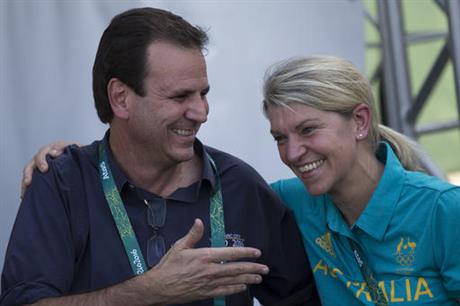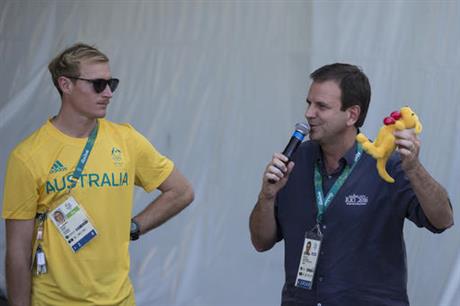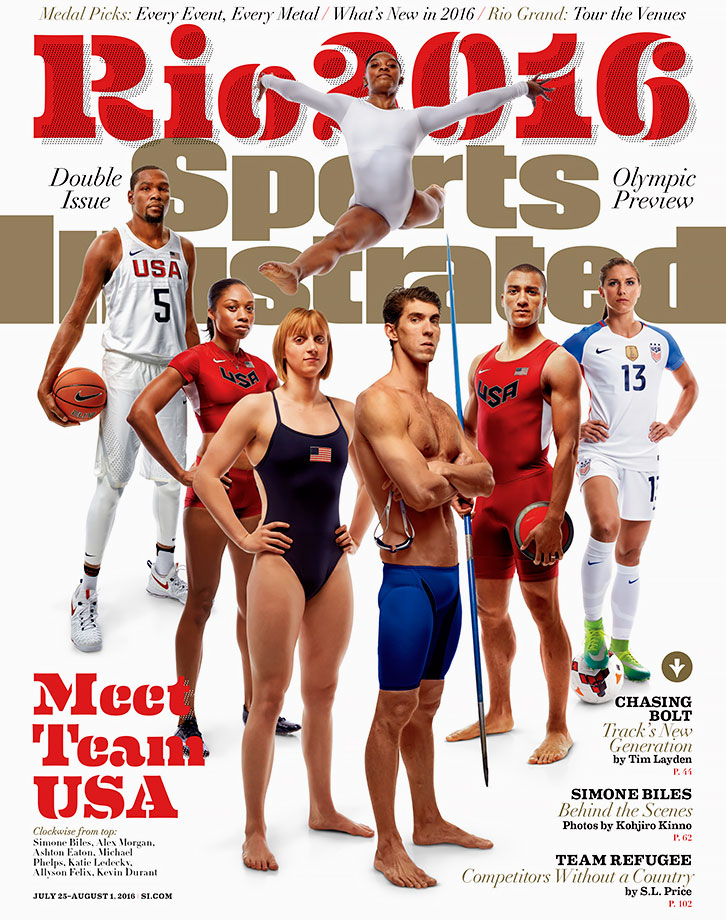RussellEbertHandball
Flick pass expert
This one is about Kitty and the Mayor kissing and making up. This one from US Associated Press
Diplomat incident avoided: Aussies get rooms at Rio Olympics
By STEPHEN WADE Jul. 27, 2016 4:47 PM EDT

Rio de Janeiro's mayor Eduardo Paes, left, greets Australia's delegation head Kitty Chiller during a ceremony at the Olympic Village in Rio de Janeiro, Brazil, Wednesday, July 27, 2016.

Rio de Janeiro's mayor Eduardo Paes, right, holds a toy Kangaroo he received from the Australian Olympic delegation as he talks next to Australia's hockey player Aran Zalewski during a ceremony at the Olympic Village in Rio de Janeiro, Brazil, Wednesday, July 27, 2016.
Diplomat incident avoided: Aussies get rooms at Rio Olympics
By STEPHEN WADE Jul. 27, 2016 4:47 PM EDT
Diplomat incident avoided: Aussies get rooms at Rio OlympicsRIO DE JANEIRO (AP) — A near-diplomatic incident — as Rio de Janeiro Mayor Eduardo Paes termed it — came to an end on Wednesday ahead of the Olympics. The Australian delegation gave the mayor a tiny "boxing kangaroo" doll as the sign of a truce. It also said it's now happy with its rooms at Rio's Olympic Athletes Village. The 700-member delegation refused to check in three days earlier because of water and gas leaks, electrical shorts, malfunctioning toilets and general filth.
The unfinished village, built at a cost of about $1.5 billion, marks the first organizational crisis of South America's first Olympics, which open in just over a week. Attention now shifts to dozens of venues, which will be filling up in the next few days with thousands of athletes hoping to practice. Problems here could make village problems seems small.
"It was almost a diplomatic thing," the mayor said, speaking to Australian officials and members of the men's field hockey team at the 31-building village.Paes apologized and acknowledged Australia's "was the worst building." "Australia was right," he said. "It was not in good shape. That was a mistake of the organization. What we have to do now is go ahead and organize it. They've got their building now, and I hope things go well from now on." As his offering, Paes gave delegation head Kitty Chiller the keys to the city, and a doll representing the official mascot Vinicius......

Rio de Janeiro's mayor Eduardo Paes, left, greets Australia's delegation head Kitty Chiller during a ceremony at the Olympic Village in Rio de Janeiro, Brazil, Wednesday, July 27, 2016.

Rio de Janeiro's mayor Eduardo Paes, right, holds a toy Kangaroo he received from the Australian Olympic delegation as he talks next to Australia's hockey player Aran Zalewski during a ceremony at the Olympic Village in Rio de Janeiro, Brazil, Wednesday, July 27, 2016.






